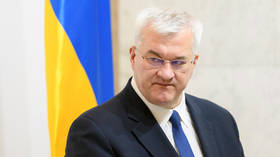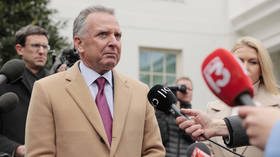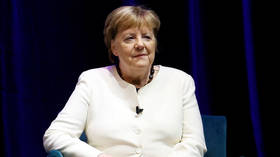G20 comes up with stimulus and pause on new regulation
The G20 summit has closed with a defeat for those seeking tougher regulation of the markets - but a commitment to boost aid to troubled economies.
A new round of the game with the same old rules. The G-20 leaders agreed to continue fiscal stimulus with tough talk about regulation. British Prime Minister Gordon Brown hailed the agreement on stimulus, which he says will keep millions in work.
“We are in the middle of an unprecedented fiscal expansion, which will, by the end of next year, amount to an injection of $5 Trillion into our economies. And it will save or create millions of jobs in a period where we must combat unemployment.”
EU proposals to reform the regulation of the financial system have been watered down. Under the G-20 communiqué the leaders did promise a new international accounting standard and made brief mention of banks’ toxic assets. Russia’s president Dmitry Medvedev says concrete measures will appear straight after the summit.
“All the decisions that were taken at the summit on financial support, market stabilisation, protectionism and financial institutions, are serious decisions for the future. Not all of them are decisions for immediate action. But further work in this direction will result in concrete international agreements.”
Meanwhile the US Financial Accounting Standards Board is expected to vote Thursday to give auditors more flexibility in valuing illiquid assets. This will let banks be more creative with how they value assets and improve their balance sheets. The US is softening the rules at a time when others are calling for tougher regulation, according to Kevin Dougherty, Pharos Financial Group.
“I think the must important area where they need to improve the regulations is around the derivatives market, and specifically around the over the counter derivatives market. Quite frankly it’s a place where banks, investment banks, and hedge funds, go to hide risk, or take more risk than their regulators would prefer for them to take, but, because of the nature of the market, it’s very easy to hide it.”
However some specific measures were taken in London – the IMF is given an extra $500 billion which will be lent to countries whose economies run into trouble.
Another $600 billion will be pumped into the global economy through other financial institutions like the World Bank. Much of the money will go to indebted East European countries which need to repay their creditors – the Western banks.













